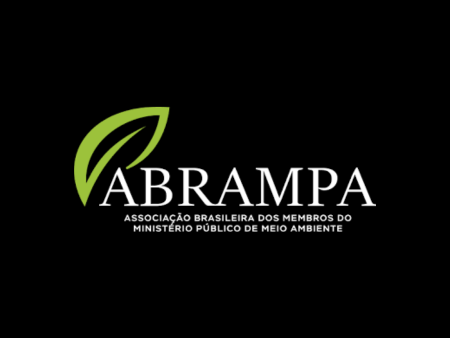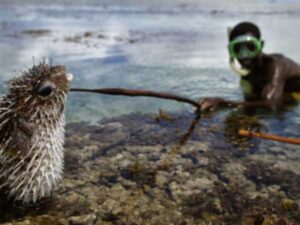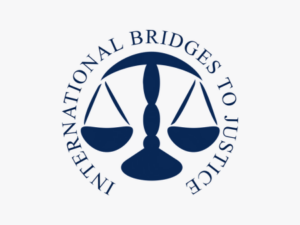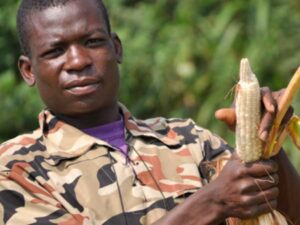The Brazilian Association of Members of the Public Prosecutor’s Office for the Environment (ABRAMPA) is a non-profit organization, created in 1997, which brings together members of the State, Federal, Labor and Accounts Public Ministries, working to defend the environment and urban planning throughout the national territory.
Vinicius Lameira Bernardo spoke with Ambika Samarthya-Howard on June 6, 2025. Click here to read the full conversation with insights highlighted.
Ambika Samarthya-Howard: What is ABRAMPA, and how does it relate to MapBiomas or Avina?
Vinicius Lameira Bernardo: ABRAMPA is the National Association of Environmental Prosecutors. In Brazil, we have federal prosecutors, state prosecutors, and we also have the branch of labor prosecutors. Now there’s a movement from labor prosecutors. They are starting to study and try to understand how climate change impacts the labor environment. They are becoming closer to state prosecutors and federal prosecutors. We have all these prosecutors in ABRAMPA and we deal with a wide range of environmental matters. Not only climate change, but also deforestation, protection of river basins, and the urban environment.
Ambika Samarthya-Howard: The labor prosecutors are also state or federal prosecutors, or they’re completely separate?
Vinicius Lameira Bernardo: They’re separate.
Ambika Samarthya-Howard: What do labor prosecutors do in relation to the environment?
Vinicius Lameira Bernardo: Usually, they do not work regularly with deforestation, protection of river basins, and atmospheric pollution. They only deal with the protection of the workers, collective rights of laborers, because of the impacts of climate change in the labor environment.
Ambika Samarthya-Howard: Can you give some examples you’re trying to advocate for?
Vinicius Lameira Bernardo: We have become closer to labor prosecutors because of chemicals. This is a common matter between the state, federal, and labor prosecutors. We, state prosecutors, are concerned about the impact of chemicals on the environment, on the water, on the soil. The labor prosecutors are concerned about those impacts on workers, on farmers, and workers in the rural area. This is the common matter that we’ve been discussing in ABRAMPA. ABRAMPA aggregates all those prosecutors, and MapBiomas is a very important tool that we’ve been using to identify deforestation. We use MapBiomas, the satellite images, and then we try to bring that to our work as prosecutors.
Ambika Samarthya-Howard: All environmental prosecutors have to be state prosecutors?
Vinicius Lameira Bernardo: No. They can be federal prosecutors as well. If we are talking about protection of the environment, enforcement of environmental law, you are going to look only to state prosecutors and federal prosecutors. In Rio de Janeiro, we are 32 state prosecutors dealing with environmental law, working with environmental law enforcement. We are distributed throughout the state.
GAEMA, the specialized environmental law group, works only with the big issues in environmental law. It’s a special task force that deals only with environmental law enforcement. We pick the most important case. The state prosecutor has to agree that the case should be moved to GAEMA.
Currently, in GAEMA Rio de Janeiro, we are dealing with 60 or 70 cases. We have investigations and class actions.
Ambika Samarthya-Howard: What’s the difference between an investigation and a class action?
Vinicius Lameira Bernardo: Class action is after you submit the procedure to the judicial court. Investigation is before.
Ambika Samarthya-Howard: What type of class action suits do they have? Do you work with that group?
Vinicius Lameira Bernardo: Yes. We have five main areas of interest right now: water safety, climate change, disasters, public sanitation, seaward water and waste. I’m in charge of the investigations regarding climate change.
Ambika Samarthya-Howard: Can you give me some examples of what that looks like when it’s successful, and some examples when it’s not successful?
Vinicius Lameira Bernardo: Right now, we have two investigations on climate change. We are trying to enforce the state climate change policy, and the city of Rio climate change policy. We are trying to implement the legal instruments. My first action last year was focused on the state of Rio de Janeiro. We started a dialogue with the State Secretariat for the Environment so we could implement the state Climate Change Forum to make public participation possible in the development of the state climate change plan. It includes not only representatives from the public authorities, but also people from universities and organized civil society. It is legally provided for, but it wasn’t functioning. So our first move was to try to set it up. We talked with the state of Rio de Janeiro to bring back the State Forum. There are several legal instruments in state politics, but they were not implemented. That was our first task.
Ambika Samarthya-Howard: In a case like that, who are you prosecuting?
Vinicius Lameira Bernardo: We were not prosecuting, we were having talks, and trying to convince the state to implement the legal instruments without prosecuting them. Because we can make deals outside of judicial courts. We call it TAC – Termo de Ajustamento de Conduta (Conduct Adjustment Agreement). They have to comply with the law. We didn’t have to formalize because they agreed to implement the state council on climate change. The name is Climate Change Forum. Now the forum is working well.
Ambika Samarthya-Howard: How do you know it’s working well?
Vinicius Lameira Bernardo: They created the thematic chambers. So, the discussions are now going on in the forum. Another legal instrument that we had a conversation with the state about was the Climate Action Plan from the state of Rio de Janeiro. They were discussing the plan, they were choosing the organizations, the institutions who would be in charge of elaborating the state plan on climate change, and they signed the contract with the Federal University of Rio de Janeiro, which will develop the state climate action plan. They are already working on that. It was another achievement from GAEMA’s work.
Ambika Samarthya-Howard: What do you think is going to be easier to do, and what will be harder, in the state action plan?
Vinicius Lameira Bernardo: They need to do mitigation strategies and adaptation strategies.
Ambika Samarthya-Howard: Can you give me an example of a few of those?
Vinicius Lameira Bernardo: They’re still working on the plan, but they need to establish sectoral targets for reducing greenhouse gas emissions. They’re going to do a new mapping of the vulnerabilities of the state of Rio de Janeiro. They’ll have to map our vulnerabilities, like heat waves and mass movements, flooding and landslides. Landslides are one of the major risks in Rio de Janeiro.
Ambika Samarthya-Howard: Do you also map the effects on communities, like Indigenous communities and other communities?
Vinicius Lameira Bernardo: Yes. Not only Indigenous, but also other traditional communities in Rio, and the most vulnerable. The poor places, the cities, and the neighborhoods that are more exposed to climate risks. Mostly because low-income people are living there.
Ambika Samarthya-Howard: A lot of the climate organizations in Brazil I’ve spoken to work with Indigenous communities and quilombolas. Some of them are trying to move policy. Do you work with the organizations, directly with the community, or with the organizations that work with the community? How do you navigate the ecosystem?
Vinicius Lameira Bernardo: Well, we try to identify the areas where we need to act, and within those areas we identify partners to work with. I’m going to give you an example. Here in Rio de Janeiro, what are we doing as state prosecutors to combat deforestation? First of all, using satellite images. We are trying to make partnerships with some actors. We are using the satellite images from MapBiomas to identify deforestation, and send the images of deforestation to the prosecutors. The prosecutors will have to enforce the law and combat deforestation in their area.
About climate change, we became partners with the Federal University of Rio de Janeiro and the Federal Rural University of Rio de Janeiro. They are helping us to perform better regarding combating climate change, because inside the state prosecution office, we don’t have experts on climate change.
In each area, we identify possible partners, both from civil society and other partners from the public sector who do work different from ours. I’ll give you an example: the Courts of Accounts. The main function of the Courts of Accounts is to analyze the accounts of the executive branch. But the Courts of Accounts have been taking on a second role, which is to assess the sustainability of public policies — analyze how efficient and how sustainable public policies are. They have a technical team dedicated to evaluating public policies, which is more specialized than prosecutors. We are not experts on elaborating public policies and taking into consideration economic aspects, social aspects.
The Public Prosecutor’s Office of Rio de Janeiro is approaching the Courts of Accounts so that the Courts can assess the sustainability of public policies and help the Public Prosecutor’s Office take legal action against municipalities or states when the state, aware that it is being negligent or inefficient in carrying out a public policy, takes no measures to reverse the situation.
Ambika Samarthya-Howard: It’s a lot of coordination.
Vinicius Lameira Bernardo: Yes, it’s not easy. I became the coordinator of the environmental division of Rio de Janeiro just two months ago. I’m still trying to create this relationship with all these civil and public institutions that can cooperate with us regarding our duties to protect the environment.
Ambika Samarthya-Howard: One thing that I’ve heard is that it’s hard to track the implementation of the law, even though the policies are very good, which is what the MapBiomas project is really useful for. What have you found works, besides MapBiomas, in terms of helping implement the law?
Vinicius Lameira Bernardo: First, talking about the lack of legal implementation. I’ve been working as a prosecutor for the last 19 years. We have a lot of corruption, lack of specialized people, because municipalities here in Brazil are in charge of several duties regarding environmental protection. They have a lot of duties, but they don’t have enough financial support. We have a lack of specialized people, lack of financial resources, and corruption. I would tell you that these are the main problems regarding environmental law enforcement.
Ambika Samarthya-Howard: What actually helps to counteract that?
Vinicius Lameira Bernardo: Our first approach is always to get close to the public authorities, to identify the gaps in law implementation and try to fix them through dialogue, through TACs. When we sign a TAC with the public authorities, they are obligated to comply, so we don’t need to file a lawsuit. We can skip the process of filing lawsuit. When we can’t succeed through dialogue and consensus, we need to file public civil actions. An example: when I was working in my hometown city, I had to file a petition to the judicial court to require the municipality to elaborate the municipal basic sanitation policy. They didn’t have a public sanitation plan setting targets for universal access to the sewage system.
They had a law saying that they needed to have a plan, and a plan includes targets for sewage service coverage, for example. So, the city of Búzios should provide sanitation to 100% of the population. They should have a plan stating in how many years they would reach that goal of providing public sanitation to every house in the city.
We asked the judicial court and required the municipality to develop this plan. So, the plan will be a document with concrete service coverage targets and also regulating the billing for the service (how much they would charge people to implement public sanitation for everyone, like providing water and sewage).
This is an example where we didn’t reach an agreement and had to file a lawsuit.
Ambika Samarthya-Howard: You’ve been in this position for the last two months. What is it that you’re trying to do?
Vinicius Lameira Bernardo: My role is to support the state prosecutors by providing reading materials and developing strategies on how to be more efficient in environmental law enforcement. Right now, for example, I have three main ongoing projects. The first of them is combating deforestation to protect the Atlantic Rainforest in Rio.
Ambika Samarthya-Howard: Tell me about your role in ABRAMPA.
Vinicius Lameira Bernardo: I’m Vice President at ABRAMPA. For the last three years, I’ve been coordinating a forum of debates between prosecutors regarding climate change. We gather, we invite specialists to talk to us, and we try to understand how we can be more efficient on climate change issues.
Ambika Samarthya-Howard: What have you learned that actually works?
Vinicius Lameira Bernardo: We wrote several manuals, reading guides, guiding principles on how to enforce mitigation and adaptation measures. We have three publications about that.
Ambika Samarthya-Howard: In your role in ABRAMPA are you bringing together all of Brazil?
Vinicius Lameira Bernardo: Yes. We have a big project called ABRAMPA Pelo Clima (ABRAMPA for the Climate). ABRAMPA for the Climate was created with several fronts. One front was the debate core. We have another program, which is a program for protecting Amazon. This program started to understand the structure of public prosecutors in the Northern region and how to assist them in defending the environment. Combating illegal deforestation, illegal gold mining, fighting land grabbing.
Ambika Samarthya-Howard: Brazil is the size of a continent, every part of Brazil has different needs. How do you work together?
Vinicius Lameira Bernardo: They are different teams. Our core is more academic, more focused on reading materials, inviting specialists. It’s about spreading knowledge. And the Amazon project was a more concrete project, to evaluate the working structure of prosecutors in the Northern region and how to assist them to perform their functions better.
Ambika Samarthya-Howard: Can you tell me about your work with Avina?
Vinicius Lameira Bernardo: Avina helped us with a publication about how prosecutors can deal with the environment and climate change. They helped us. Many years ago, Avina helped with a specific project in the State of Mato Grosso do Sul regarding reforestation of river basins. They provided funding and expertise as well.
Ambika Samarthya-Howard: Do you work with other groups?
Vinicius Lameira Bernardo: More with ICS – Instituto Clima e Sociedade [Institute for Climate and Society]. They found the ABRAMPA for the Climate. Everything we do in ABRAMPA for the Climate is funded by ICS.
Ambika Samarthya-Howard: If you have a group in ABRAMPAs working in Amazon deforestation and working on the northeast, and a group that’s doing something different, how do you figure out what the priorities are? How do you choose your partners?
Vinicius Lameira Bernardo: We have many partners at ABRAMPA, and we end up selecting the partners, or sometimes we are selected by these partners. We find these partners according to these specific interests. So, it’s a region of Brazil, or it’s a theme, because some partners are interested in deforestation, others in fires, others in the Pantanal, and others in the Amazon.
With ICS, we became partners because when I came back from my legal master’s in Australia, I wrote a piece regarding the role of the judicial system in climate change. Then I was invited to a conference. There, I met someone, Cayo. He began to work with Clima e Sociedade, and I started to cooperate with them on raising awareness about climate change.
I was the first person from the Public Prosecutor’s Office studying climate change. So, we had this exchange of information, and I tried to bring the issue of climate to ABRAMPA. That’s when the first initiative arose to bring information about climate change to the Public Prosecutor’s Office. The Avina Foundation helped us with this. Avina funded the first publication about the Public Prosecutor’s Office in Brazil and climate change. After that, we started exploring where in our work we could address climate change: urban planning, waste, public sanitation, deforestation, licensing of industrial plants. So this path of the debate core is an evolution, trying to show that the Public Prosecutor’s Office has a role to play in the issue of climate change.
ICS started funding the project, but they also began to demand more concrete action projects – not only discussing or elaborating publications. Other projects came up, like the one regarding Amazon.
Ambika Samarthya-Howard: When you think about things like sewage, urban planning, and flooding happening in Rio, and then you think about deforestation and what’s happening in the Amazon, they don’t seem to have much in common. What is similar between those two issues?
Vinicius Lameira Bernardo: I don’t think they’re that different. One is academic, and the other is about concrete action. Based on studies of climate change and how greenhouse gas emissions are distributed in Brazil, it becomes very clear that deforestation needs to be ABRAMPA’s main focus. So ABRAMPA turns its attention to this biome and carries out, for example, the project Amazônia em Foco (Amazon in Focus). And the Amazônia em Foco project is about how we can combat deforestation in the Amazon region, not only through civil actions but also criminal prosecution. We developed strategies to combat deforestation in the Amazon region.
ABRAMPA identified the need to raise awareness on climate change and the prosecution office in Brazil. Then we started to help prosecutors in the Amazon region to combat deforestation.
Ambika Samarthya-Howard: Thinking about the tools and the perspective of being a prosecutor working on the laws in the Amazon, and then thinking about the tools and perspective of the laws in Rio, what do they have in common? If they’re very different laws, their implementation is very different, right?
Vinicius Lameira Bernardo: No, because we have a lot of federal laws that are mandatory all over the country.
Let’s talk about emissions in Brazil. They are very different in different states. Emissions in the Amazon region are caused by deforestation. However, in Rio, they come from energy and waste. In the debate core, I try to expose this difference in how prosecutors should act depending on where they are working. We try to demonstrate to the prosecutor in Rio de Janeiro that if they want to bring climate change concerns into their daily work, they must focus on the energy sector. They have to be concerned with emissions from industry. They will need to look at the licensing procedures, the licensing of industries.
We try to implement these different strategies all over Brazil, considering the local distinctions.
Ambika Samarthya-Howard: What’s the purpose of having a national group when everybody has very specific concerns? What will you learn in Rio from someone in Paraná, for example?
Vinicius Lameira Bernardo: We also have common concerns: waste, deforestation, public sanitation. Here in Brazil, we have federal laws that are mandatory all over the country because we have 27 states, very different in some aspects, similar in others. The problem of solid waste is similar in many places. We have a federal law that governs how waste must be properly disposed of in Brazil. So what I work on with waste in Rio de Janeiro can be useful to my colleague in Paraná, my colleague in Espírito Santo, or my colleague in Minas Gerais. If we think about the big cities, the urban problems are similar, which is also connected to climate change, like the move from individual transport to collective transport, electrifying the fleet of public transportation.
For example, here in Rio I will use the same MapBiomas as my colleague in Amazonas or in Espírito Santo. So ABRAMPA brings the knowledge of MapBiomas to Brazilian prosecutors. ABRAMPA made this connection with MapBiomas and spread awareness about MapBiomas among prosecutors. And today many state Public Prosecutors’ Offices use MapBiomas. So yes, we will have projects that actually don’t overlap. Amazônia em Foco is an ABRAMPA project for the Amazon because we understood that Brazil’s biggest problem in terms of deforestation and biodiversity loss is the Amazon region. And we understood that ABRAMPA needed to work specifically to protect that biome.
We also have another project focused on combating deforestation in a different biome, which is the Cerrado. It’s mainly concentrated in the central region of Brazil, in the states of Mato Grosso do Sul, Mato Grosso, and Goiás. It’s a very important biome. It has been devastated by big farmers with the consent of the state. We developed a specific project also to combat deforestation in that area. Another important project is in the biome Pantanal. ABRAMPA also developed a project to combat fires in Pantanal. ABRAMPA also has this role of identifying strategic actions that we can work on with the prosecutors in charge of their states.
Another example is our project in MATOPIBA – a region formed by parts of the states of Mato Grosso, Tocantins, Piauí, and Bahia. It’s an area under very harsh devastation. ABRAMPA developed a more effective way to combat this deforestation. In this project we have two lawyers and a geographer. This team identifies the main deforestation polygons in the MATOPIBA region and we developed a model of class action. We send all this material to the prosecutors in Mato Grosso, Tocantins, Piauí, and Bahia. Because not every prosecutor is a member of ABRAMPA, but we also help prosecutors who are not from ABRAMPA. We are now helping these prosecutors in the cities within MATOPIBA to combat deforestation with our team.
Click here to read the full conversation with insights highlighted.
Ambika Samarthya-Howard (she/her) is the Solutions Journalism Network’s Chief Innovation Officer: She leads on innovation and technology, leverages communication platforms for the network strategy and creates cool content. She has an MFA from Columbia’s Film School and has been creating, teaching and writing at the intersection of storytelling and social good for two decades. She has produced content for Current TV, UNICEF, Havas, Praekelt.org, UNICEF, UNFPA, Save the Children, FCDO, Global Integrity and Prism.
* This interview has been edited and condensed.







